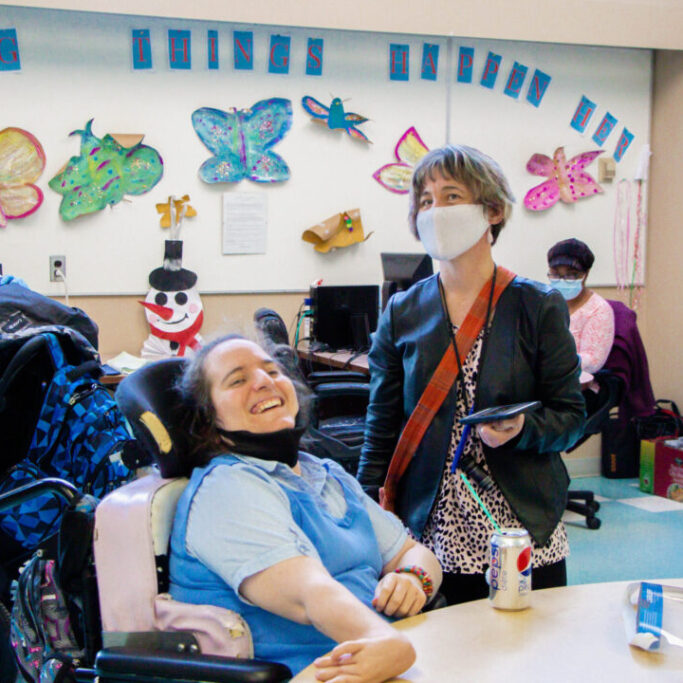At Chrysalis, we are guided by a vision, where people with disabilities are accepted by and included in society for their ability to contribute and where these individuals have the same rights and privileges as all citizens. Our mission is to provide personalized services to empower individuals with disabilities to accomplish their employment, volunteer, and recreational goals. This is our passion.
Change, Growth, Opportunity
Our Values

ommunity

bilities

espect

mpowerment

ocial Networks

Our Values

Community
Abilities
Respect
Empowerment
Social Networks
The Evolution of Chrysalis

Our story begins in 1968 when the Industrial Research and Training Centre (IRTC) was created, a first of its kind agency that trained adults with developmental disabilities to produce manufactured goods. IRTC was an empowering alternative for individuals who no longer wanted to stay in school or be inactive at home.
After four years, IRTC became the Western Industrial Research and Training Centre (WIRTC), a non-profit society operated by a volunteer Board of Directors. WIRTC evolved into Chrysalis in 1992.
By 2018, Chrysalis had undergone many changes, most notably adopting Human Centered Design (HCD) as a service delivery model. This model optimizes customer satisfaction and outcomes by focusing on people, collaboration, and services made with people rather than for them. By implementing HCD, we ensure that the human perspective is accounted for throughout the entire program design process, allowing the designer to truly understand the challenge in order to produce the right solution. Our personalized approach outlines the individual’s unique hopes, dreams, abilities, and life goals and helps them to realize their full potential.

Human Centered Design (HCD) Approach
Our HCD process consists of:
- Discovery: the inspiration, learning, and assessment phase
- Ideation: brainstorming opportunities and solutions
- Prototyping and Implementation: bringing ideas to life and scaling up


